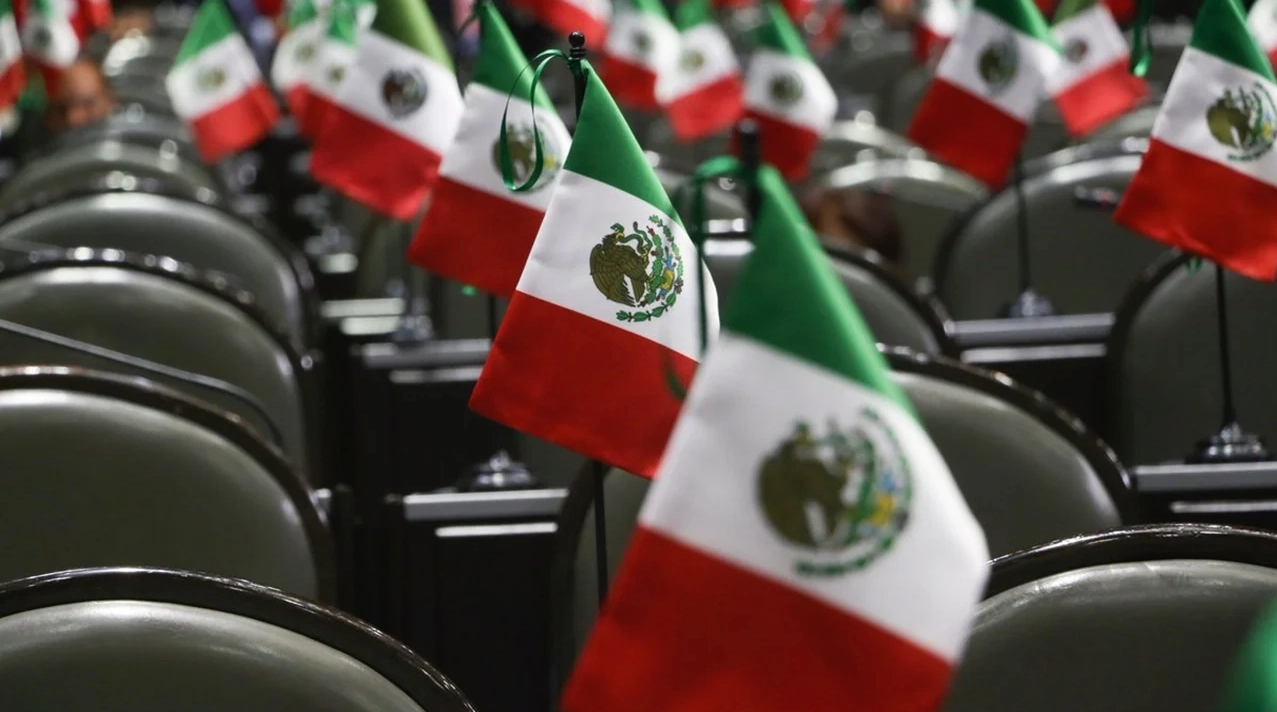On February 5, 2024, Andrés Manuel López Obrador, president of Mexico, presented a set of twenty initiatives to reform the current Mexican Constitution. It is almost improbable that they can be voted on and implemented. As he does not have sufficient legislative majorities to achieve this, he is doing so in his last year of government and amid the beginning of this year’s electoral contests. Beyond this juncture, what is certain is that López Obrador has put on the table an issue that has not been treated with due attention by the political class and the citizenry since Mexico transitioned to democracy in 2000: is the current Mexican Constitution democratic?
Mexican society can boast of having one of the longest-lived Constitutions in Latin America and the world. Enacted in 1917, as a result of the Mexican Revolution that broke out in 1910, at that time it was considered one of the most advanced Constitutions in terms of social rights. However, more than 100 years have passed, it has been constantly modified, and to date, it has undergone more than 700 reforms, of which more than 230 took place as of the year 2000. Since then, constitutional modifications have not stopped. Each change of government has implied introducing new reforms. Some are substantive, but not to the extent of modifying their design, which still maintains the imprint of the last century.
At the end of the 20th century and the beginning of the 21st century, several countries in the region enacted new Constitutions: Colombia in 1991, Peru in 1993, Venezuela in 1999, Ecuador in 2008, and Bolivia in 2009. In Argentina, a profound reform was carried out in 1994. In Chile in 2005, where also two constitutional projects were debated recently, one in 2022 and the other in 2023, although unsuccessfully. Despite their failure, the constitutional trials have allowed Chilean society to identify the political and social concerns of the moment, but also the horizons that need to be considered for the 21st century. Compared to these exercises, it is worth asking: are the continuous reforms to the Mexican Constitution sufficient to assume that it is fully democratic?
Strictly speaking, no. The Mexican Constitution is very elitist. First, any attempt at reform depends on the correlation of forces in the executive and legislative branches and must be pushed and approved by party leaders, a small group that controls the political agenda, since not just any legislature member can truly push for constitutional reform. Second, the formal process to modify it implies that any reform must be voted by two-thirds of the chambers of Deputies and Senators, as well as by half of the thirty-two legislatures of the states of the federation. If one of these requirements is not met, it does not prosper. Third, the review of the procedure remains in the hands of another elite, the Supreme Court of Justice of the Nation, composed of only eleven people. Fourth, citizens do not need to ratify or reject these modifications through a referendum, as happens in many advanced democracies. That is, the citizens are excluded de facto and de jure in the making of the main political normative document that governs them.
The current Mexican Constitution is overloaded with secondary issues rather than substantive ones. The word “democracy” appears only once and not as a central part of an article (the third, which deals with education), but in one of its sections (a), where it is defined for the first time as a system of life. “Democratic” appears only 16 times as an adjective and not as a noun. On the other hand, “political parties” appear more than 70 times, “National Electoral Institute” (INE) more than 60 times, “President of the Republic” more than 50 times, and “elections” more than 40 times. The word “people” only makes sense when it refers to indigenous and Afro-descendant people, but if you look closely, it is conceptually confused with “communities”. In the rest of the document, the word “people” ends up referring to everything and nothing at the same time.
The articles relating to the powers of the executive, judicial, and legislative branches, as well as elections, comprise more than half of the Constitution, and most of them refer to procedural matters, which is why they should be in secondary laws since only a few are substantive. All this scaffolding ends up favoring the majority parties over other representative options. Political parties are essentially organizations of free citizens who exercise their right of association to make politics. But in Mexico, this right is vetoed, since a series of requirements must be met that in practice almost no one achieves.
Just to exemplify, at the beginning of 2019, the INE received notification of 106 organizations wishing to become political parties. After more than a year, in September 2020, it ended up granting recognition to only one party, coincidentally, an ally of the government in office. The figure of “independent candidacy” was introduced in 2012 to “citizenize” the political system, but with such complex requirements that only a few have managed to obtain a position that way.
It is so inefficient that in 2024 there is no national representative by that figure. Technically, the “legislative citizens’ initiative” exists, but its implementation is so complex that it can only be activated by the elites of the political parties and, if successful, its final approval remains in the hands of the legislative powers. It is no coincidence that since its introduction, in 2012, only one citizens’ bill has been voted in Congress by the impulse of an elitist movement. In 2019, the “popular consultation” and the “revocation of mandate” were introduced, but both exercises carried out in 2021 and 2022 respectively were activated by the president in office and his party, not by the citizenry.
As it can be seen, although it would seem that the reforms of the last decades have democratized the Mexican Constitution, the truth is that a minimalist and conservative perspective of democracy has been privileged over a broader and more liberal one.
In a world that has already changed and faces current challenges, is it convenient to continue with a Constitution that has been systematically patched but without deeply reflecting on its democraticity? Perhaps there is a better time to change it, but neither should we postpone a profound update that really involves the citizenry.
*Translated by Janaína Ruviaro da Silva from the original in Spanish.












